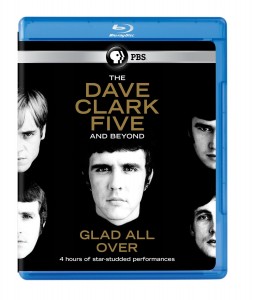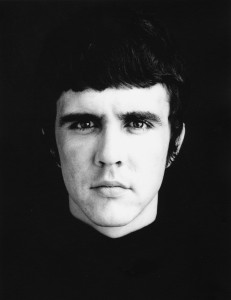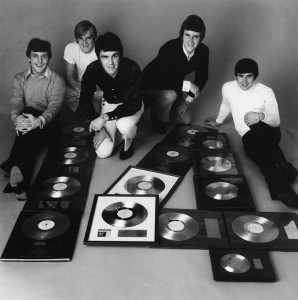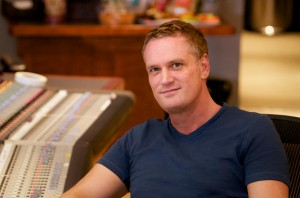Interview: Children’s Music Star Alex Mitnick
Posted on June 11, 2014 at 3:59 pm
Alex Mitnick stars in Alex & The Kaleidoscope, a fun and friendly series on YouTube and NYC-TV. Mitnick uses music and colorful, inviting adventures to engage children’s curiosity. I really enjoyed talking to him about what makes music such a powerful learning tool and how he teaches teachers, even those who think they have no musical talent.
https://www.youtube.com/watch?v=SptyzV8820AWhat songs did you like when you were a kid?
Probably my mom singing at the piano which is pretty typical. I imagine for a lot of musicians, it was in the house. My dad plays a little guitar and I always remember my mom singing show tunes and my dad singing folk songs like, “Jump down, turn around, pick a bale of cotton…” There was always music in my house. I have pretty clear memories of dancing around to this reggae record that my parents brought back from Jamaica. And then of course I listened to those early like pre-Raffi kids’ music guys. And most of it was just to the music that my parents listened to.
And what was the first instrument that you played?
I did! I had piano lessons from my very early age from a blind piano teacher who I vaguely remember but we are talking like first, second grade. And then in fourth grade I got the chance to try the saxophone in my public school in Boston where I was living with my family at a time. In fifth grade I switched over to trumpet and I played the trumpet all through fifth grade up to 12th grade in high school. I was in the school band and I was in the marching band and the jazz band and the concert band and I sang in the choruses at school and I usually did the annual musical. I was never the star but I was always involved with the music program one way or another.
Towards the end of high school, I really found music to be a powerful tool for me to actually socialize with when I was hanging out. I wasn’t necessarily the most talkative kid but by 11th to 12th grade there was a core group of guys that whenever we got together, we ended up sort of jamming on guitars or like big African drums or just playing the kitchen table; making some kind of music one way or another as just part of what we did to hang out. And that basically blossomed into kind of jamming on guitar more. And then by my third year in college I switched from Penn State University where I was just pursuing environmental science. Then I finally honed in on guitar and jazz guitar and composition and ended up graduating with a degree in jazz guitar, which in many ways was kind of the beginning of my life as a career musician for sure.
Why is it so important for kids to learn music? As you know music programs are often the first ones cut. Why is it important? What do kids get from studying music?
Well for me I think it became a form of expression that was so much easier for me than necessarily my words or even writing in high school. Having music as a means and an outlet to really show the world who I was was really important for me. And I think for young kids, especially having something like that beside your basic social skills, your basic conversational skills or even writing or math or having this sort of almost instantaneous means to connect to other people or to connect to something you’re passionate about. Maybe you have learned a song on the piano that you hear on the radio and suddenly you’re actually creating something in your life. You are in charge, you see the immediate feedback. I think that is an incredibly empowering tool for anybody but especially kids.
And I would say more basically, it just makes kids happy! Kids playing music are happy, they really are; especially young kids. Young kids dancing and singing are 99 out of 100 times happy and enjoying it. So it’s just this incredible resource for joy and good thing in a child’s life.
I like the way that you encourage kids to create analog instruments out of stuff that’s in the home. So what are some of the instruments that you like to teach them how to make?
The most primal and basic instrument is actually like the human body itself. So when my son is 15 months old he will bang sticks on things but the most fun we had is when he just started moving his body, clapping his hands together, slapping his knees, echoing my musical or rhythmic phrases and expressing himself with just the basic thing he was born with which was his body. And when I teach music class to kids, most of what we do is singing, stomping, clapping, feeling the beat and it is a very physical thing. I can speak from experience with a baby myself, as soon as we are in the kitchen, my son is pulling out all the Tupperware and I am giving him spoons and eggbeaters and anything that he can get his hands on to just start playing along and making some noise. And then in addition to that, the work I’ve done with kids, there are so many simple tasks like making a paper cup, filling it with beans or rice or beads or something like that, taping over the top and then suddenly you’ve got a couple of shakers and maracas right there. And then you can do that same thing with all sorts of recycling material like plastic pens or coffee cans and especially you can turn anything into some kind of unique percussion instrument. A little bit of time and effort and you’ve got yourself a little percussion orchestra.
What kind of music do kids like best? I know they all love the songs from “Frozen!”
The “Frozen” thing is for one, just an absolutely brilliant multi-billion-dollar marketing campaign; which has essentially got it into every single family’s car or YouTube or whatever. It is just brilliant across-the-board! But also, I think people like to also be able to sing familiar songs with other kids, so everybody knows the song. If it’s not that, it’s “Happy” from Pharrell Williams. It goes to show you how much you appreciate happy sounding and joyful music.
Good music is good music whether you call it kids’ music or not and that is certainly the case with me and my son. I just basically play music that I like, anything with an upbeat rhythm and a happy melody, he is really responsive. Parents in my generation really grew up listening to some pretty great music. We were listening to rock and pop as kids and so we’re trying to re-create that experience for ourselves with our own kids, playing stuff like the Beastie Boys or Beach Boys whatever it is.
That’s really my philosophy when I write music for kids. Like I want to listen to it. I really don’t put on much for my son that I seriously wouldn’t want to be blasting in my car myself.
You wrote an album for him, didn’t you?
Yes — Love Songs for My Baby. It’s just like this outpouring of emotion and affection from the parents towards the child.
What are some of the fun topics that you address in your songs for children?
I am inspired by the beauty and wonder of childhood itself. And like with my TV show: Alex and the Kaleidoscope, the whole point is that when you are looking through the kaleidoscope, you’re actually looking through the eyes of the child. So essentially, if you can turn them on to something, it would really be anything, any subject whatsoever. And that is what is so cool about music; you give it like a fun upbeat rhythm and a catchy little melody, you can essentially teach a child about anything with a song. And I have got songs about everything. On our TV shows we go to the zoo, we go to the aquariums, we have a shark song, we have a Kangaroo song, we have train songs, we have human body songs and we have songs about gardening, we have songs about space or about the sky, it’s limitless!
Kids truly have a sense of wonder almost of anything and it’s our job as teachers and adult and I think and in particular entertainers of kids, to basically turn them onto that wonder.
How do you help teachers learn how to incorporate music?
Well it’s actually pretty funny because I essentially do exactly what I do with a bunch of like 3 to 6-year-olds, except they are all adults so they have all these other inhibitions. But it’s all based on the theory that each and every one of us has music in us somewhere. Very few people I’ve ever met don’t have some kind of natural response to music and so in my typical way of making it kind of fun and playful and just taking the pressure off of participants in these workshops, we just go through rhythms, games and exercises or take funny songs that they might know and just turn them into more broad games. And then suddenly, some of the people who would never call themselves musicians without any instruments or anything are all jamming together making music.




